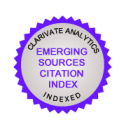The European Parliament and the evolution of its legislative power and the EU law-making system
Keywords:
Agencies, Assent, Co-decision, Codification, Conciliation, Consent, Consultation procedure, Cooperation procedure, Delegated acts, Good practice, ImplementingAbstract
The purpose of this article is to present the evolution of the role of the European Parliament in the legislative power of the European Union and its impact on the whole system of EU law-making acts. This presentation is structured according to legal criteria and discussed from a legal point of view. There is information on the context of general international law and on relevant Political Science studies; regarding bibliography, special attention has been paid to insiders publications.The first part of the article focuses on the Parliament’s role in past and present legislative procedures, where it has produced either preparatory acts (as in the consultation, conciliation, cooperation and assent/consent procedures) or legislative acts in the framework of the co-decision procedure (the so-called «ordinary legislative procedure») or, in rare cases, out of special legislative procedures.
The second part throws light on the consequences of the growing role of the European Parliament as a legislator, on the legitimacy and the quality of European legislation (with references to the relevant interinstitutional acts) and on the parliamentary scrutiny of acts of the executive based on Articles 290 and 291 TFEU, acts for the implementation of the new legislation for economic governance, and acts of European agencies, bodies or offices.
In the conclusions some general comments are submitted as regards the development of the European Parliament prerogatives concerning legislation, and also on the development of negotiations with the Council in legislative procedures, imposing limits on the backbenchers participation in the legislative process and on access of the public to information about the preparatory work of legislative acts. Last, there is a reflection on resistence and nostalgies in the presence of the new provisions of the Lisbon Treaty, inconsistent with the fact that they were drafted with a very substantial representation of MPs from Member States, and about the reaction that could be expected from the European Parliament.
Downloads
Downloads
How to Cite
Garzón Clariana, G. (2015). The European Parliament and the evolution of its legislative power and the EU law-making system. Revista De Derecho Comunitario Europeo, (50), 43–83. Retrieved from https://recyt.fecyt.es/index.php/RDCE/article/view/38969
Issue
Section
STUDIES
License
Copyright
Submission of a manuscript to the RDCE implies having read and accepted the journal's editorial guidelines and instructions for authors. When a work is accepted for publication, it is understood that the author grants the RDCE exclusive rights of reproduction, distribution and, where appropriate, sale of his manuscript for exploitation in all countries of the world in printed version, as well as any other magnetic, optical and digital media.
Authors shall transfer the publishing rights of their manuscript to RDCE so that it may be disseminated and capitalised on Intranets, the Internet and any web portals and wireless devices that the publisher may decide, by placing it at the disposal of users so that the latter may consult it online and extract content from it, print it and/or download and save it. These activities must comply with the terms and conditions outlined on the website hosting the work. However, the RDCE authorises authors of papers published in the journal to include a copy of these papers, once published, on their personal websites and/or other open access digital repositories. Copies must include a specific mention of RDCE, citing the year and issue of the journal in which the article was published, and adding a link to the RDCE website(s).
A year after its publication, the works of the RDCE will be under the Creative Commons Attribution-Noncommercial-NoDerivative 4.0 International license (CC BY-NC-ND 4.0), which allows third parties to share the work as long as its author and its first publication is indicated, without the right to commercial exploitation and the elaboration of derivative works.
Plagiarism and scientific fraud
The publication of work that infringes on intellectual property rights is the sole responsibility of the authors, including any conflicts that may occur regarding infringement of copyright. This includes, most importantly, conflicts related to the commission of plagiarism and/or scientific fraud.
Practices constituting scientific plagiarism are as follows:
1. Presenting the work of others as your own.
2. Adopting words or ideas from other authors without due recognition.
3. Not using quotation marks or another distinctive format to distinguish literal quotations.
4. Giving incorrect information about the true source of a citation.
5. The paraphrasing of a source without mentioning the source.
6. Excessive paraphrasing, even if the source is mentioned.
Practices constituting scientific fraud are as follows:
1. Fabrication, falsification or omission of data and plagiarism.
2. Duplicate publication.
3. Conflicts of authorship.
Warning
Any breach of these Rules shall constitute a ground for rejection of the manuscript submitted.









